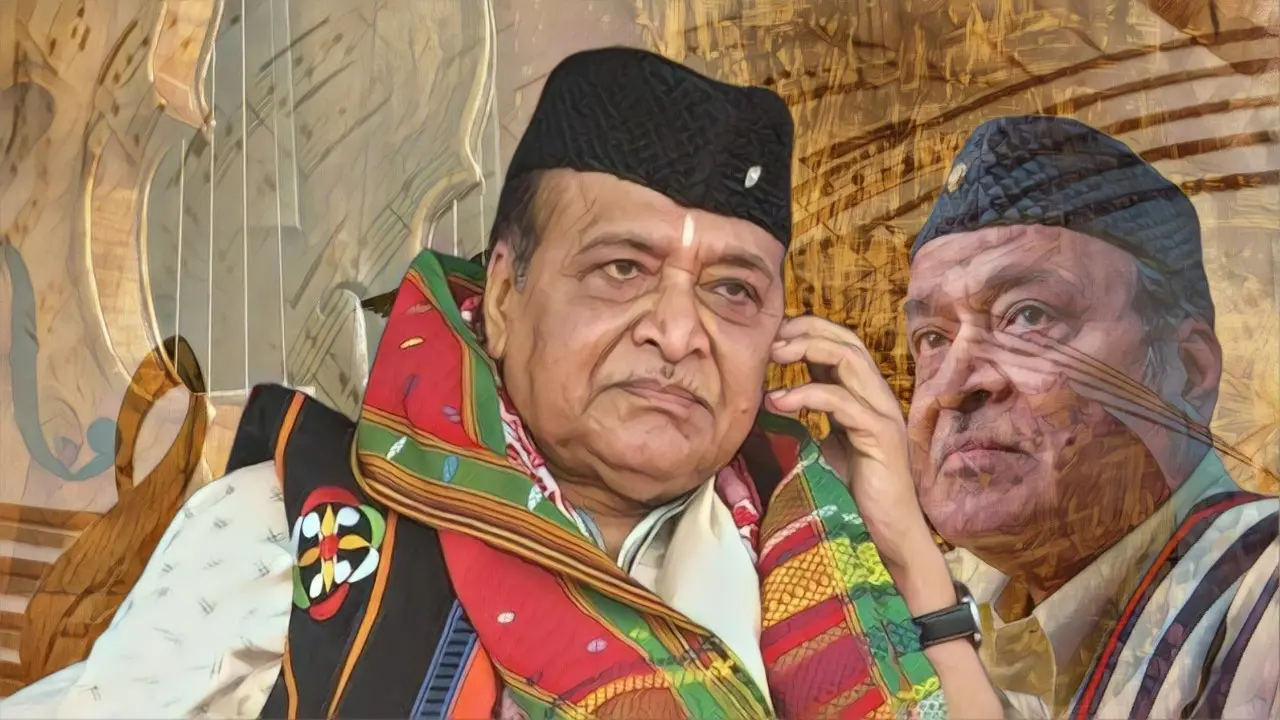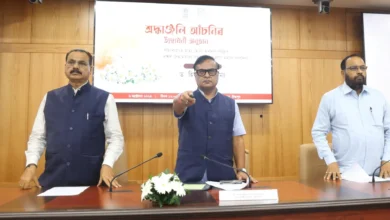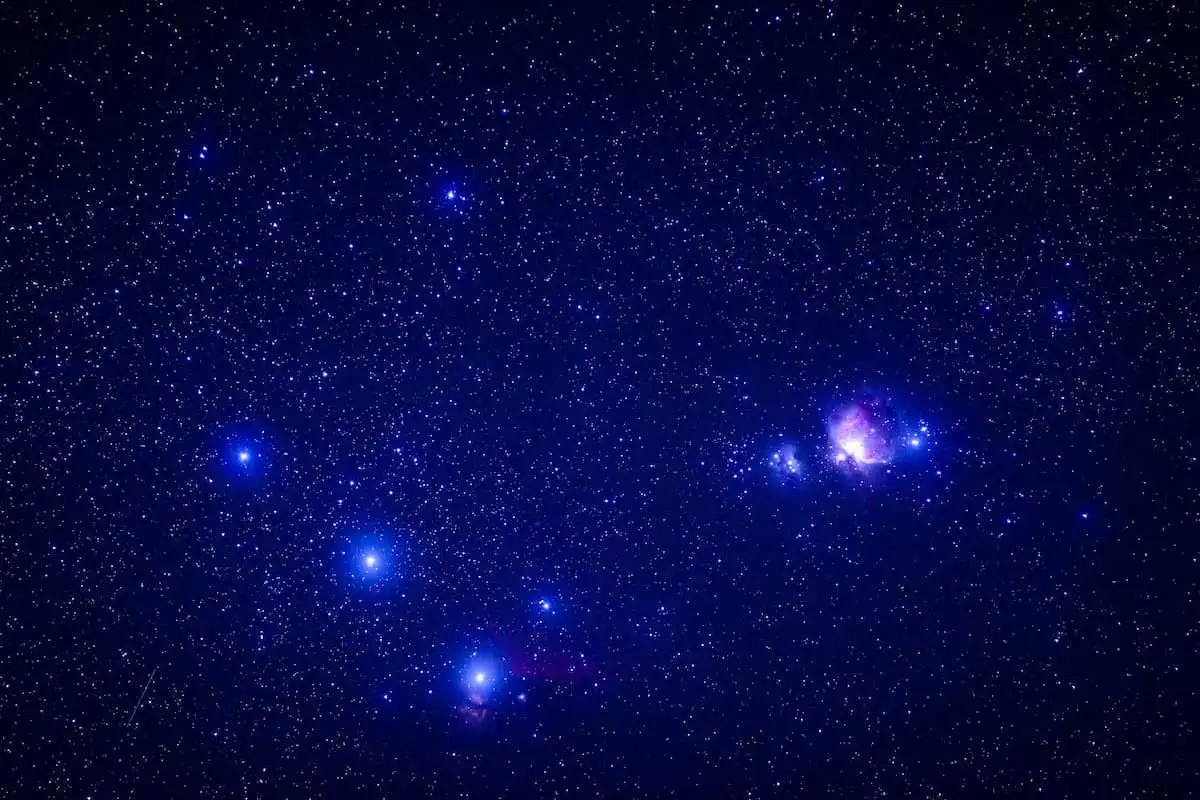The Legacy of Dr. Bhupen Hazarika: A Cultural Icon of Indian Music and Cinema

Dr. Bhupen Hazarika: The Bard of the Brahmaputra and His Enduring Legacy in Indian Music and Cinema
Dr. Bhupen Hazarika, fondly remembered as the “Bard of the Brahmaputra,” left an indelible mark on Indian music, cinema, and literature. His multi-faceted legacy transcends regional boundaries, reflecting a rare blend of artistic brilliance, social consciousness, and cultural pride. Hazarika’s contributions encompass a range of roles—musician, singer, lyricist, composer, filmmaker, and poet, with each aspect of his work shedding light on the struggles, aspirations, and richness of life in northeastern India, especially in his beloved state of Assam. His career, which spanned over six decades, showcased his mastery in using art as a medium for cultural expression and social reform.
Born on September 8, 1926, in Sadiya, Assam, Bhupen Hazarika was exposed to Assam’s vibrant folk traditions and musical heritage from a young age. His formative years were influenced by his parents, especially his mother, who often sang lullabies and traditional Assamese songs. This cultural richness was further reinforced when he met the renowned Assamese filmmaker Jyoti Prasad Agarwala and the pioneering Assamese artist Bishnu Prasad Rabha. These early encounters sparked his passion for music and storytelling, setting him on a path to become one of India’s most beloved cultural icons.
Dr. Hazarika’s songs are known for their lyrical beauty, soulful melodies, and deep socio-political messages. His music celebrated Assam’s folk traditions while also embracing themes of unity, love, and humanity. Known for songs like “Manuhe Manuhor Babe” (translated as “For Humanity”), he advocated for a world where humans support each other across divides of caste, class, and creed. This spirit of inclusivity resonated not only with Assamese audiences but also with people across India, as he sang in multiple languages including Bengali and Hindi.
Hazarika’s music was often a voice for the voiceless, bringing attention to the struggles of marginalized communities, including the tea garden workers and the indigenous tribes of Assam. His iconic song “Bistirno Parore” (translated as “On the Wide Banks of the River”) is an Assamese adaptation of Paul Robeson’s “Ol’ Man River,” in which he speaks about the resilience and hardships of people. Through this song, and many others, he portrayed the river Brahmaputra as a witness to history, a silent observer of both joy and suffering.
In addition to music, Dr. Hazarika made significant contributions to Indian cinema. He directed, produced, and wrote music for numerous Assamese films, starting with “Era Bator Sur” (Song of the Abandoned Road) in 1956. His films often portrayed the culture, ethos, and social issues of Assam and the northeastern region. Through cinema, Hazarika brought Assamese culture to a broader audience and helped foster a sense of identity and pride in his homeland.
In the 1970s and 80s, Hazarika extended his creative vision to Hindi cinema, where he composed music for acclaimed films such as ‘Rudaali’, ‘Saaz’, and ‘Daman’. His compositions for ‘Rudaali’ (1993), particularly the song “Dil Hoom Hoom Kare,” were widely appreciated for their haunting melodies and emotional depth. This work earned him national recognition and reinforced his legacy as a bridge between regional and mainstream Indian cinema.
Bhupen Hazarika’s artistry was deeply intertwined with his activism. He used his songs and films to critique social injustices, advocate for unity, and highlight the struggles of the marginalized. His role as a cultural ambassador between Assam and the rest of India was significant in promoting understanding and inclusivity. Throughout his life, Hazarika remained committed to the cause of Assam and its people, which was evident in his political career as well. He briefly served as an MLA (Member of Legislative Assembly) in Assam, and although he later distanced himself from active politics, his art continued to address pressing socio-political issues.
For his immense contributions to Indian music, literature, and cinema, Dr. Hazarika received numerous accolades. He was honored with the Padma Shri, Padma Bhushan, and posthumously, the Bharat Ratna, India’s highest civilian award, in 2019. Internationally, he was celebrated for his unique voice and commitment to human values, having been recognized by organizations such as the United Nations and awarded the Sangeet Natak Akademi Fellowship, among others.
Dr. Bhupen Hazarika’s legacy is monumental, extending beyond his lifetime. He is celebrated annually in Assam and across India, with tributes, musical events, and academic seminars dedicated to his work. His songs remain relevant, resonating with audiences for their universal themes of love, unity, and resilience. Artists across generations continue to draw inspiration from his work, and his influence is particularly visible in the new wave of Assamese music and cinema.
In a world where art is often compartmentalized by language and geography, Dr. Bhupen Hazarika’s work serves as a reminder of the power of culture to transcend boundaries. His music and films continue to inspire and educate, fostering a sense of identity and pride in Assam and offering a vision of unity and humanity for India and the world. The Bard of the Brahmaputra remains a beacon of hope and cultural pride, and his contributions to music, cinema, and society are sure to inspire generations to come.
Also read: Kamrup District Pays Tribute to Dr. Bhupen Hazarika on Death Anniversary




